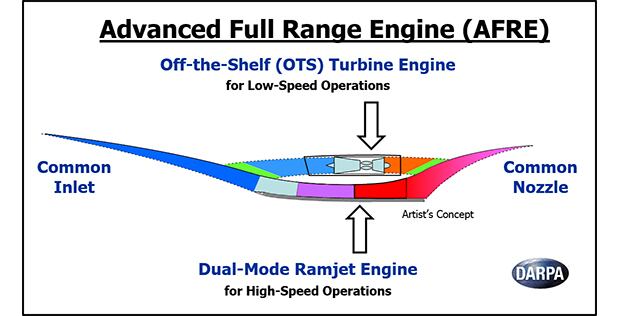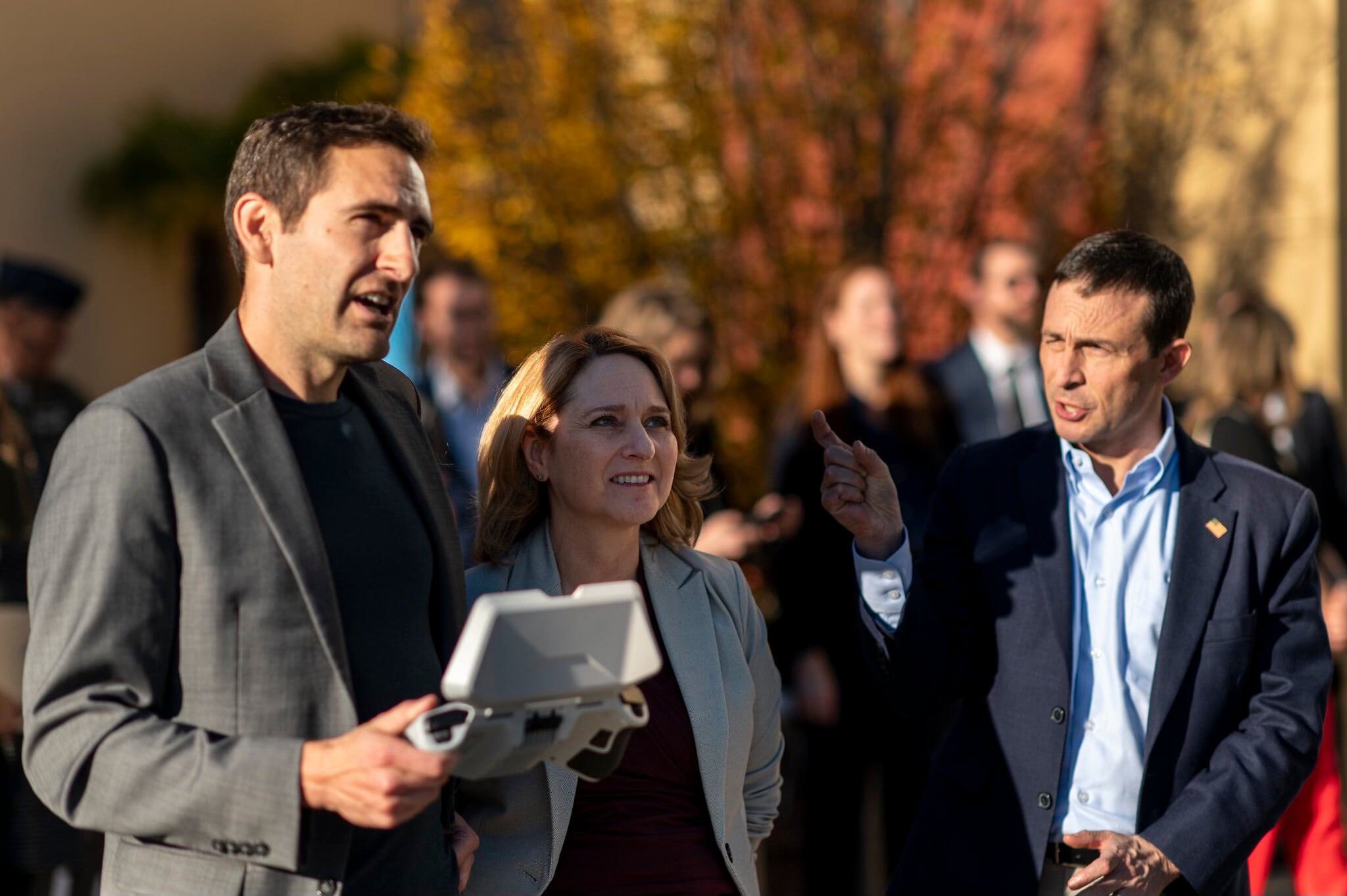
DARPA has awarded Orbital ATK a contract to develop a new aircraft propulsion system under the agency’s Advanced Full Range Engine (ARFE) program, the company announced Jan. 23. The research and development contracts will fund efforts to develop a hybrid propulsion system, capable of flying at both subsonic and hypersonic speeds (Mach 5+).
Orbital’s contract is worth $21.4 million.
In October, DARPA awarded Aerojet Rocketdyne a contract on the same program.
Currently, traditional jet-turbine engines have a maximum speed of Mach 2.5, and hypersonic engines operate at minimum speeds around Mach 3.5. This means any air-breathing hypersonic vehicle built today relies on one-use disposable rocket boosters to reach the minimum speed threshold to engage the hypersonic engine. This is not economically viable.
Enter the ARFE. The Defense Department agency envisions a hybrid engine based on a propulsion concept called the Turbine Based Combined Cycle . This concept combines a traditional off-the-shelf turbine engine that operates up to supersonic speeds with a dual-mode ramjet to transition to hypersonic flight. The ability to transition between sub-, super-, and hypersonic speeds means aircraft will have more operational flexibility, reduce response times, and potentially extended range. Such flexibility is likely to become increasingly important as adversaries advance their own offensive and defensive capabilities.
While this sounds simple on paper, combining the two engine types requires the manufacturing of a common forward-facing air inlet and common rear-facing exhaust nozzle that can manage both low and high speed flowpaths.
Although the integration of turbine and hypersonic engine technologies has been attempted in the past, DARPA believes it can be done. In June 2016 the ARFE program manager, Christopher Clay, said “This won’t be the first time that ambitious engineers will attempt to combine turbine and ramjet technologies. But with recent advances in manufacturing methods, modeling, and other disciplines, we believe this potentially groundbreaking achievement may finally be within reach.”
Daniel Cebul is an editorial fellow and general assignments writer for Defense News, C4ISRNET, Fifth Domain and Federal Times.






